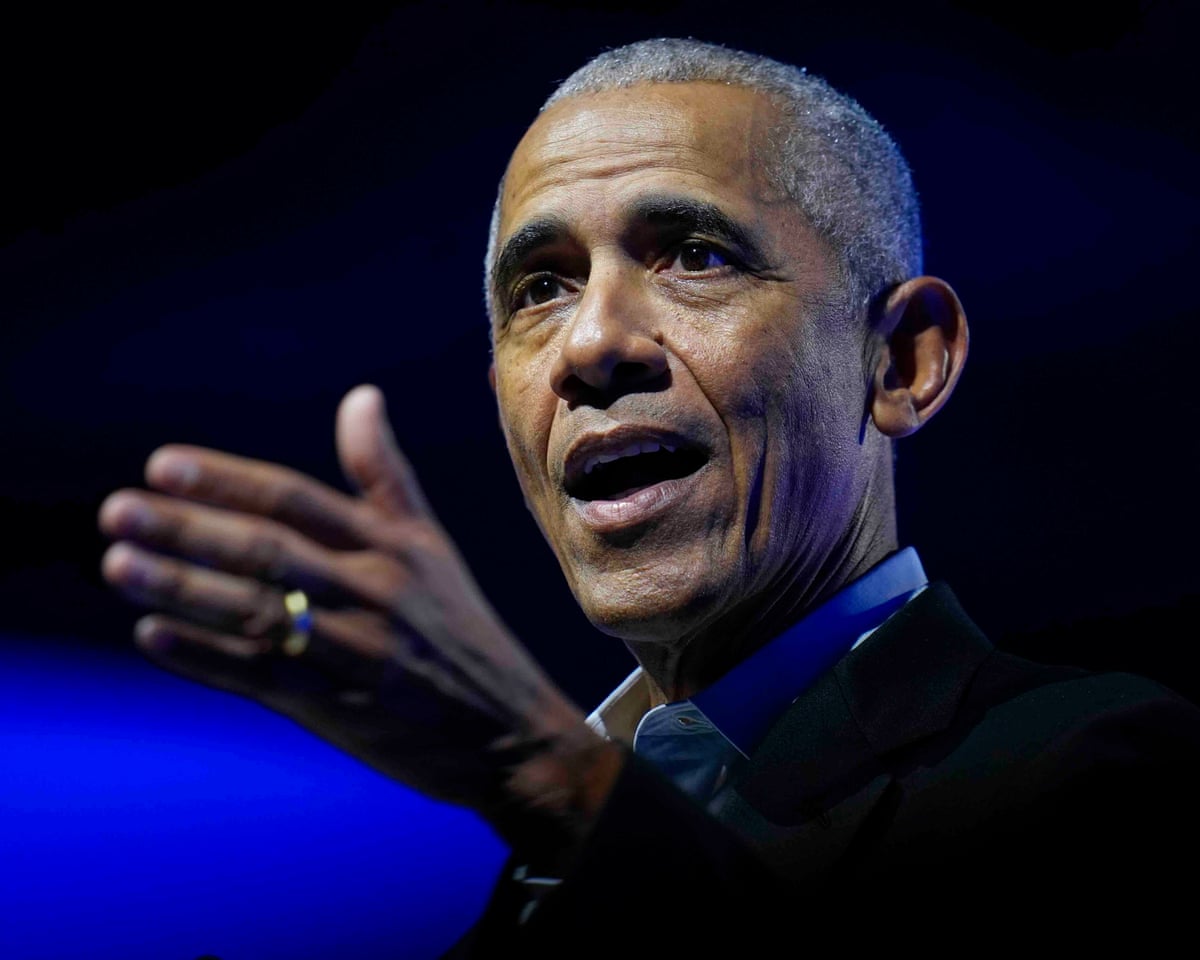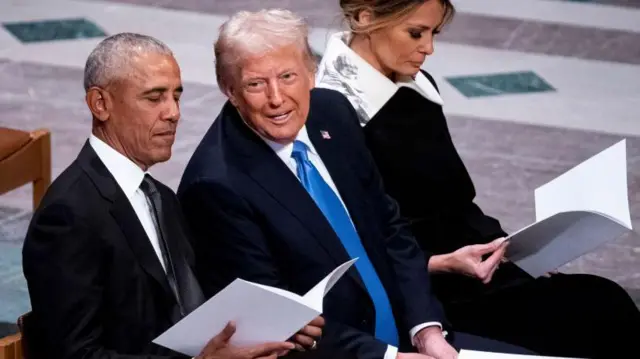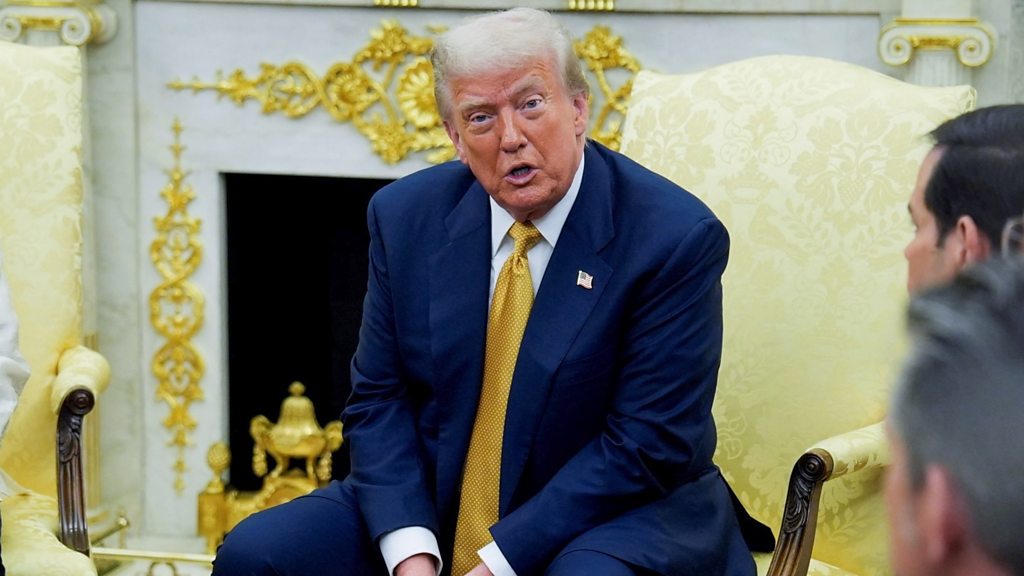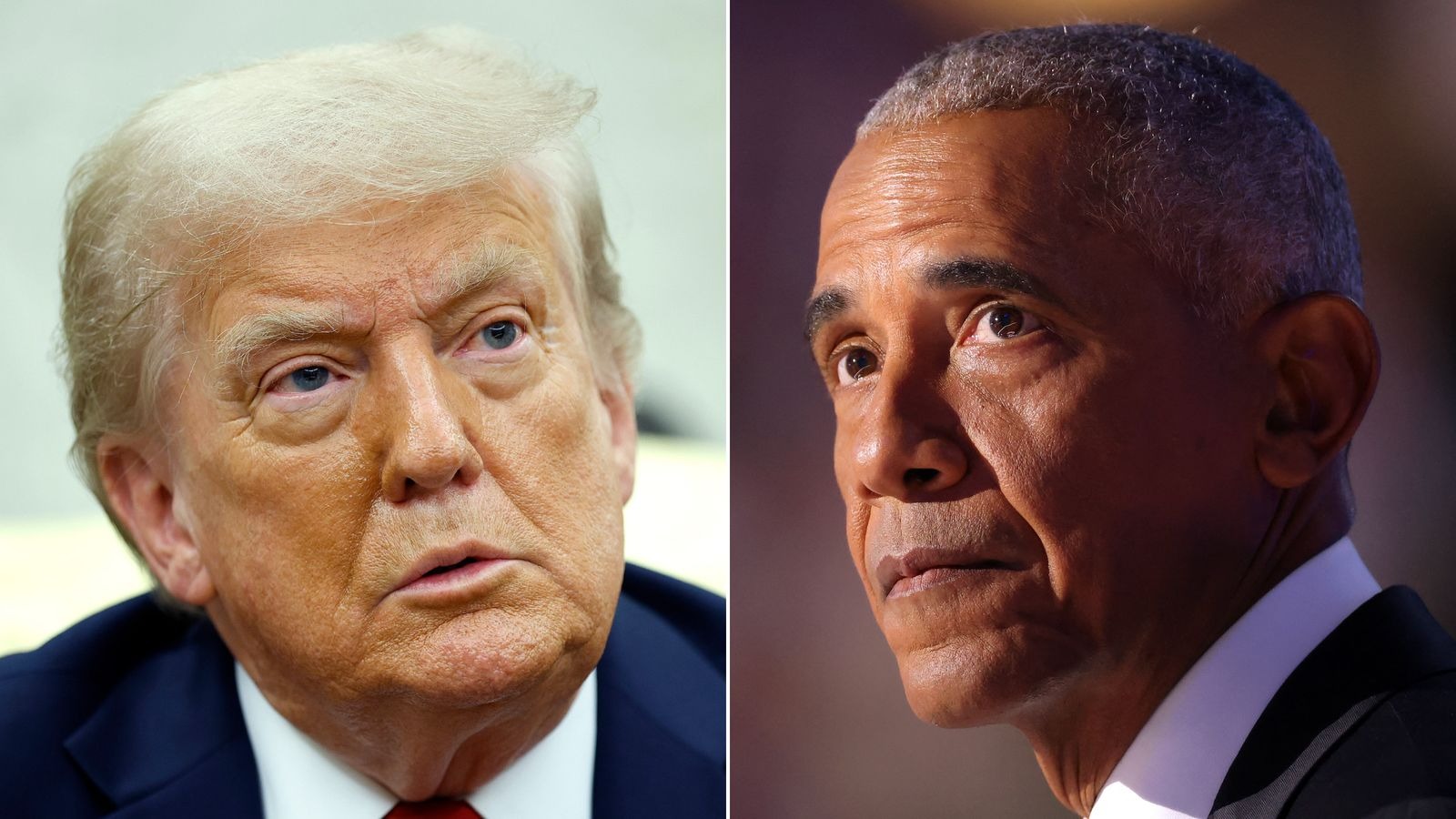Background of the Allegations
Former United States President Barack Obama has issued a rare public statement responding to recent accusations made by former President Donald Trump. Trump claimed that Obama had attempted to manipulate the outcomes of the 2016 and 2020 U.S. presidential elections — allegations that have not been substantiated by official investigations or credible evidence. These claims have drawn widespread media attention due to the seriousness of the word “treason” in the political context.

Obama’s Office Breaks Silence
Obama’s spokesperson, Patrick Rodenbush, explained that the former president’s office generally refrains from responding to unverified accusations. He emphasized that, out of respect for the office of the presidency, they typically do not engage with political rhetoric or misinformation. However, he added that the recent allegations were so extreme that a public response was necessary.
In his statement, Rodenbush described the claims as “outrageous” and “a weak attempt at distraction.” He reaffirmed that credible findings from past investigations had already addressed the topic of foreign interference in U.S. elections, noting that these conclusions remain consistent across bipartisan and independent reports.

Context from Official Findings
Multiple U.S. intelligence agencies, along with the bipartisan Senate Intelligence Committee, have previously reported that Russia attempted to influence the 2016 election primarily through disinformation campaigns and cyber activities. These investigations concluded that while foreign actors sought to interfere, there was no evidence that votes were changed or that election outcomes were altered. These findings have been supported by both Democratic and Republican members of Congress, as well as by security experts.
Reaction to Tulsi Gabbard’s Report
The statement from Obama’s office also addressed an 11-page report released by Director of National Intelligence Tulsi Gabbard. In that report, Gabbard accused certain Obama-era officials of engaging in a “treasonous conspiracy” and called for legal action against them. Patrick Rodenbush rejected these allegations, saying that nothing in the report undermines the established conclusions about Russian interference or implicates former President Obama in any wrongdoing.
The former president’s team reiterated that the use of such charged language in political discourse is both irresponsible and damaging, especially when it is not supported by concrete evidence.

Justice Department Investigation Announcement
Shortly after these public statements, U.S. Attorney General Pam Bondi announced that the Justice Department had convened a grand jury to examine issues related to the declassified materials released by Gabbard. The investigation aims to review whether intelligence assessments from the Obama administration were handled properly. This probe is reported to include scrutiny of several high-profile former officials, though no charges have been filed and the investigation remains in its early stages.
Obama’s office did not comment on the details of the Justice Department inquiry but maintained its position that prior investigations have already addressed the relevant matters.
Political Repercussions and Public Response
The exchange between the two former presidents has intensified political debates in Washington. While Trump’s supporters have amplified the accusations, critics have dismissed them as unfounded. Media outlets across the political spectrum have covered the story extensively, with many analysts noting the rarity of Obama issuing any public statement directly countering his successor’s claims.
Observers also point out that this dispute comes at a time when political tensions in the United States are already heightened due to ongoing electoral campaigns, legal proceedings involving prominent political figures, and public concern about the spread of misinformation.

Importance of Verified Information in Public Discourse
The incident underscores the broader challenge of addressing misinformation in political debate. Political scientists and fact-checking organizations stress the importance of relying on verified data and official reports when making claims about matters as serious as election integrity and national security. Unverified accusations can undermine public trust in democratic institutions and polarize political discussions even further.
Looking Ahead
While the Justice Department’s investigation moves forward, it remains unclear whether any new evidence will emerge to change the conclusions of earlier bipartisan and intelligence findings. For now, the public statements from Obama’s office emphasize a commitment to factual accuracy and responsible dialogue, while the political conversation surrounding the allegations shows no sign of fading.
The situation highlights how former presidents continue to play influential roles in shaping political narratives long after leaving office. It also illustrates the delicate balance between defending one’s record and refraining from becoming deeply involved in ongoing political disputes.
